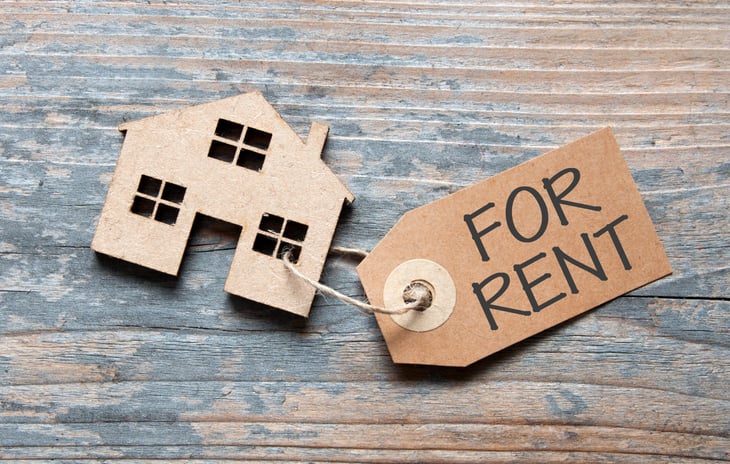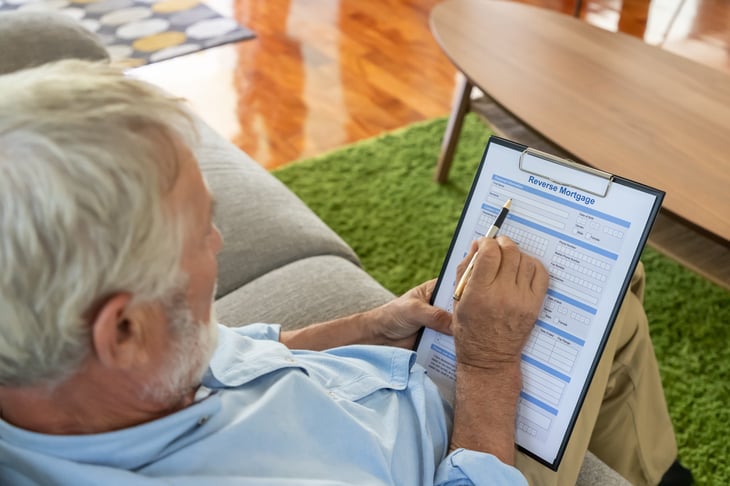
Editor's Note: This story originally appeared on NewRetirement.
Home equity (how much you owe on your mortgage subtracted from how much your home is worth) can be a useful and often overlooked retirement asset.
If you have holes (things you want or need to fund) in your retirement plan, they can perhaps be filled with your home equity.
Too many people have not saved quite enough for a secure retirement, but your home equity may make up the difference between what you need in savings and what you actually have.
So, let’s explore 1) how to tap into your home equity and 2) common ways people use home equity in retirement.
How Can You Tap Into Your Home Equity?

You have so many options for accessing your home equity. They include:
1. Downsizing: Trading Your Existing Home for Something Less Expensive

When you downsize, you sell your existing home and purchase another residence that is less expensive.
Depending on your existing mortgage, the value of your old home, and the cost of your new home, downsizing can have many potential benefits. You may be able to:
- Eliminate all mortgage payments (if home equity from your existing home is sufficient to purchase your new home).
- Give you access to a lump sum of cash (if your new home is less expensive than the proceeds from your old home).
- Reduce mortgage payments (if you still require a mortgage, downsizing to a less expensive mortgage could reduce your payments or the length of the loan).
- Reduce costs associated with your home like insurance, taxes, and upkeep.
2. Securing a Home Equity Loan

Debt in retirement is not optimal. However, mortgages (especially if you have a lower interest rate) are considered acceptable.
A home equity loan increases your debt. You are borrowing some of the money you have built up in equity in the home.
This debt must be repaid and payments start as soon as you secure the loan.
3. Renting Out a Room, Part, or All of Your Home

Depending on how you want to live your life, you can rent out parts or all of your home:
- Would you consider Golden Girls-style living where you rent out part of your home?
- Or, you are ready to hit the road and travel and are willing to rent out your home long term or for specific parts of the year?
4. Getting a Reverse Mortgage

A reverse mortgage is a kind of loan that does not require payments while you are still living in the home.
The federally insured Home Equity Conversion Mortgage (HECM) program allows homeowners age 62 and older to borrow against the value they’ve built up in their homes.
Borrowers can use their proceeds to pay off the remainder of their existing mortgage, which is also one of the loan’s requirements. Any remaining funds can then be used at the borrower’s discretion.
5. Cashing Out and Renting

Depending on the real estate market where you want to live, renting may be a better option than buying.
Common Reasons People Tap Their Home Equity During Retirement

A retirement plan is a complicated equation of unknown risks, assets, income, expenses, debts, obligations, values, goals, and priorities.
And too often your savings, benefits, and retirement income are an inadequate match for your retirement needs, wants, and the unforeseen costs that can occur.
Home equity can sometimes fill the gap. Consider these relatively common ways people use their home equity to fund retirement.
1. To Bridge a Financial Crisis, Emergency, or Other Need (Home Equity Is a Good Back-Up Plan)

Okay, let’s say that your investments are down right now. But, you need to make withdrawals to fund your expenses. You don’t want to sell when the market is down, but you need the cash.
Well, if you have home equity, then you could tap into that pool of money instead of your investments to bridge through the market trough.
The same principle applies to other surprise expenses that you might encounter in retirement.
You’ll simply want to weigh the costs of tapping home equity to the costs of securing the needed funds from savings or another asset.
Use the NewRetirement Planner to run “what if” scenarios to help determine your best path forward.
2. To Consolidate Debt

Because the interest rate is usually lower and can be tax deductible, mortgage debt is often better than other kinds of debt.
If you have debt, you may want to consider using a home equity loan to pay off the loans. It is likely that this will reduce your lifetime debt payments and improve your monthly cash flow.
3. To Fund Long-Term Care

You don’t know if you will require long-term care in the future, but if you do it can be prohibitively expensive. It is fairly common for people to tap home equity to fund this type of care.
You can sell your home to afford a nursing home or get a reverse mortgage (or home equity loan if you can qualify) to pay for in-home care,
4. To Provide Living Expenses After Savings Run Out

The good news is that we are living relatively long lives. The bad news is that those long lives require a lot of savings.
If your savings run out before you do, you can tap home equity to fund your longevity.
5. To Improve Lifestyle by Reducing Expenses (Maybe in a Location Better Suited to Retirement Life)

Downsizing can be one of the best ways to reduce your expenses.
You can downsize to eliminate or reduce your mortgage and reduce your living expenses while also retaining your accumulated home equity for future emergencies.
And, it is entirely possible that a less expensive location is better suited to the life you want to live in retirement. This is particularly true for many retirement abroad opportunities.
6. To Improve Lifestyle by Using Home Equity

It is a fact that many households have less retirement savings than required to live the life they want to live.
Depending on your overall financial picture, you could cautiously tap into your home equity to make up the difference.
We say cautiously because retaining your home equity for emergencies or other critical expenses is a wise tactic.
If you use home equity to fund household expenses throughout retirement, make sure that you are comfortable with how to medical costs, the possibility of long-term care, and a longer than expected life.
7. To Retire Earlier

Like using home equity to fund an improved lifestyle, proceed cautiously if you want to use your home to help you retire earlier.
It is possible, and can be a great option, especially if you have accumulated significant equity and can downsize to a much less expensive residence.
You just want to make sure that you have adequate equity to help you out if you encounter something unexpected in the future.
Here are some tips for tapping home equity.
Plan for Multiple Phases of Retirement

You will likely live a long time in retirement. And, the home that is right for you at 50 or 60 might not be right for you at 70 or 80, let alone when you are 90.
You can do a better job of predicting and perhaps lowering your housing costs by planning ahead. You may want to stay in your family home now, but downsize when you hit a certain milestone.
Or, conversely, perhaps you want to sell your current home — cash in on your home equity now — and live an adventurous life abroad for a few years before returning to a downsized location later on.
Because housing is such a massive retirement expense, planning for these types of changes can have a significant impact on your overall retirement wealth and security.
Relocating? Think Through Taxes

Many times, families move into areas with high property tax rates to make sure their kids can get the best education.
If your kids are grown and you’re no longer utilizing the public school system, it could make sense to move to another district with lower property taxes.
Some states are known for being retiree friendly, with low or even no sales or income tax. Others have a lower cost of living that can benefit people living on a fixed income.
And, sometimes taxes on the sale of your home can be problematic, especially if it has appreciated significantly.
Be sure to research the tax implications of your move.
Be Cautious if You Tap Home Equity Early in Retirement

Your home can be an excellent back up plan to cover you in many different unforeseen events and circumstances that you may encounter throughout retirement.
Therefore, you want to be cautious about using up your home equity early in retirement.
Think Outside the Box: Retire Abroad

Retiring abroad can be a huge lifestyle upgrade and majorly reduce your expenses: a double whammy of goodness. Here are 24 tips, lists, and quizzes for the best places to retire.
Not sure about moving out of the country? What about a tiny home?
No Matter Where You Live, You Should Build and Maintain a Personalized Retirement Plan

Housing is usually your most costly expense and also your biggest asset. It is also a big factor in your quality of life.
As such, you may want to consider housing as one of the most important components of your overall retirement plan — probably even more important than your savings.
Housing is one of hundreds of overlooked levers that people have to create a secure and happy future for themselves.





Add a Comment
Our Policy: We welcome relevant and respectful comments in order to foster healthy and informative discussions. All other comments may be removed. Comments with links are automatically held for moderation.